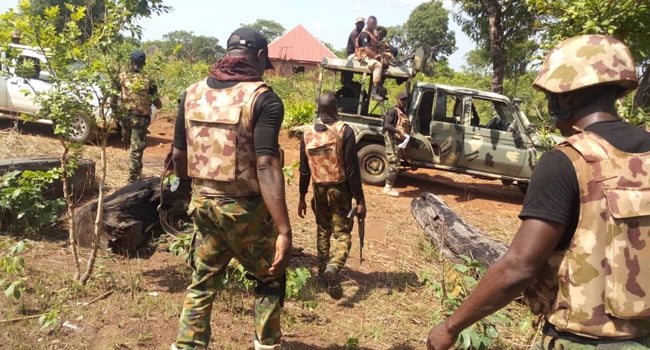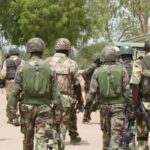The security of lives and properties is priceless, because without it there will be no meaningful development. Chapter 2 Section 14 (1) b of the 1999 Constitution as amended makes it clear that security and welfare are the primary purpose of government. It states, “The security and welfare of the people shall be the primary purpose of government.”
The immediate past governor of Osun State, Gboyega Oyetola, said “Security makes governance, business, development, trade, commerce and every ingredient associated with governance possible and predictable.” Then President, Muhammadu Buhari said when the Jukun vs Tiv crisis heated up, “Progress is impossible where violence and destruction are allowed to dominate our daily lives.”
Plateau has suffered a great deal from incessant insecurity bedevilling the state for long ranging from ethno-religious crises, farmers-herders clash to onslaughts on communities by marauders.
It was in the light of this that Plateau Peace Conference of 2004 said the incessant crises have driven away investors from the state.
- Tinubu appoints CEOs of NAFDAC, NCDC, PCN, 5 others
- Financial scandal: Labour Party suspends treasurer who ‘exposed’ Abure
With the way the crises are being handled, Plateau State might linger in the quagmire for a very long time. This is so because findings have proven that there are profiteers of the insecurity who never want it ended or abated. For instance, while the citizens were lured into believing that the crises were orchestrated from outside the state for land grabbing and Islamization, some generals who once led the security apparatus of the state claimed the upheavals were concocted from within by virtue of their security report.
General Chris Alli (rtd) now late, who was a military governor of the state and also as its administrator during the emergency rule said in 2004 that all the crises that took place were planned and executed from within. Major General Augustine Agundu, a former commander of Operation Safe Haven, the Joint Military Task Force manning security in Plateau, Bauchi and parts of Kaduna states said in an interview with the Vanguard on December 31, 2023, “You have to understand the Plateau setting. The dirty soup is cooked in the capital city but the bitter taste comes out in the rural area.” With these, it’s obvious somebody somewhere is economical with the truth and misleading the state to gain political advantage.
A worrisome issue about tackling the insecurity is the refusal of those in power to follow the advice of security experts, particularly the generals that have spoken.
Our politicians insist on using kinetic means of finding solution, while the military made it clear that kinetic means only provides 30 per cent of security and the bulk lies with political leadership. The Chief of Defence Staff, General Christopher Musa, said in the Daily Trust of November 22, 2023, “We have realised that the magic wand to address insecurity is good governance. Anywhere you have good governance, insecurity goes down. The security forces can only produce 30 per cent. We can only produce an enabling environment. If other aspects are not addressed, it is a problem.”
He said also in the Daily Trust of February 4, 2024, “And you know the Jos issue has been there for a long while; more than two decades. I can tell you that the solution is political, not military.”
He also said: “An aspect of national security study also talks about all society approach.” This refers to political approach. He further said, “Plateau as we know is a mini-Nigeria, it has 54 ethnic nationalities. So, whatever leadership position you are, you must be able to harness these 54 groups and carry them along. That’s what makes you a leader.”
He again said, “We can’t be beating the drums of war without getting any results. We know from military history that no war has ended with bullet but at the table.” The table here means political approach.
When Governor Caleb Mutfwang went to see the Chief of Army Staff, Major General Taoreed Lagbaja, over the insecurity in Plateau in July 2023, he was advised to come and seek political solution by carrying everybody along.
With these, why are the politicians deliberately avoiding good governance as panacea to insecurity?
It was all over the social media that President Bola Tinubu has approved the construction of army barracks in Bokkos Local Government Area to help stop inflows of marauders and other forms of insecurity.
But the question is, has the profuse presence of the military stalled the insecurity devouring the state and setting it in a perpetual state of deterioration in all facets of the economy, infrastructure, unity in diversity, industrialization?
Plateau has army and air force barracks in Shendam, Rukuba where the 3 Armoured Division Maxwell Korby Cantonment is, and in Kerang, likewise those of police and other paramilitary too, but have they brought peace?
We had several and severe crises between the Irigwe and the Fulani with many lives lost and billions of naira worth of properties destroyed in Bassa where the 3 Armoured Division of the Nigerian Army is stationed. Has the Air Force barracks in Kerang stopped any insecurity?
Aside the barracks, there are so many Operation Safe Haven Sector commands in the state, but which have not stalled the incessant attacks and ethnic and religious confrontations. These fall back to what the trained security personnel, the generals, said about political approach to finding lasting solution.
The barrack issue is funny because the politicians have poisoned the minds of Plateau citizens against the military, and opted for Mobile Police, is this sincere means of seeking an end to the insecurity? They claimed the army is compromising with the enemy, but you still want an army barracks constructed. Several times women were used to attack the army, yet they want an army barracks constructed, what an irony.
General Augustine testified of his experience in Plateau saying, “I usually remind my officers that the Plateau people were citizens with some perceptions that have burnt in their heart over time, so they sometimes see us as their enemy; so we must be ready to take that insult in the course of our operations.”
Aside from the political profiteers, the governed too have their issues. General Augustine stated how fake Internally Displaced Persons, IDPs, have benefited from such venture. He said, “At a time, they said there were internally displaced persons. I set up a committee to go to all the villages and most of them (IDPs) came from 2008 and 2010 crises which preceded this administration (Lalong’s). And I told his excellency that I was going to close some of the camps.
“What happened was that people were becoming mischievous, including some non-governmental organisations. They would collect money from their financiers and when you go to the IDP camps, you won’t see anybody there, but once you say there will be distribution of materials, people will run to the camp, collect their share and go back to their respective homes.”
The land grabbing issue which became so strong led to the previous administration enacting anti-land grabbing law, but nobody ever approached the agency to claim their occupied land with any proof. This shows something is wrong somewhere.
For insecurity to end in Plateau State, there must be sincerity of purpose and the use of both kinetic and non-kinetic approach.
When General Alli came as an administrator under an emergency situation, he promised not to use force, but political approach despite being a retired general. He visited communities and had dialogue with them.
Chris Alli then organised Plateau Peace Conference in 2004 which took place from 18th August to 21st September, 2004, where all the tribes and religions in the state were represented and proffered solutions to the recurring crises.
The conference came up with solution tagged “Plateau Resolves”. The resolution was so effective that the state witnessed tremendous peace for four good years, until the Jonah David Jang administration came and set the resolution aside.
The Peace Conference of 2004, outlined all areas that needed to be addressed to attain lasting security. The issues of onslaughts, ethno-religious crises are few out of all other issues discussed. The factors discussed were Land Use/Ownership, Indigeneship, Citizenship, Traditional Matters, Social and Religious Factors. Others were Political Factors, Security Matters, Economic Factors, Farmer/Grazer Conflict, and Role of the Media, Youth and Women issues.
The Plateau Resolves was a collective resolve of all indigenous and non-indigenous tribes.
The Conference, just as the Chief of Defence Staff said, concur to it that good governance is recipe to ending insecurity.
It is vital for the government to visit the Plateau Resolves, study it and find solution to ending all forms of insecurity. It said, “Conference believes that bad governance is the foundation for conflict, while good governance can prevent conflict.”
The government can stop herders’ attack, but what about youth restiveness causing kidnapping? What about political vendetta causing uneasy calm between political parties, and so on?
The government should consider the advice of security experts and safeguard the lives of the citizens they promised to protect.
Too much blood has been shed needlessly with no end in sight, and the state is paying dearly. It’s time to try the good governance approach using the resolve of the people enacted in 2004.
Mazadu, a peace advocate, sent this piece from Jos, Plateau State

 Join Daily Trust WhatsApp Community For Quick Access To News and Happenings Around You.
Join Daily Trust WhatsApp Community For Quick Access To News and Happenings Around You.

